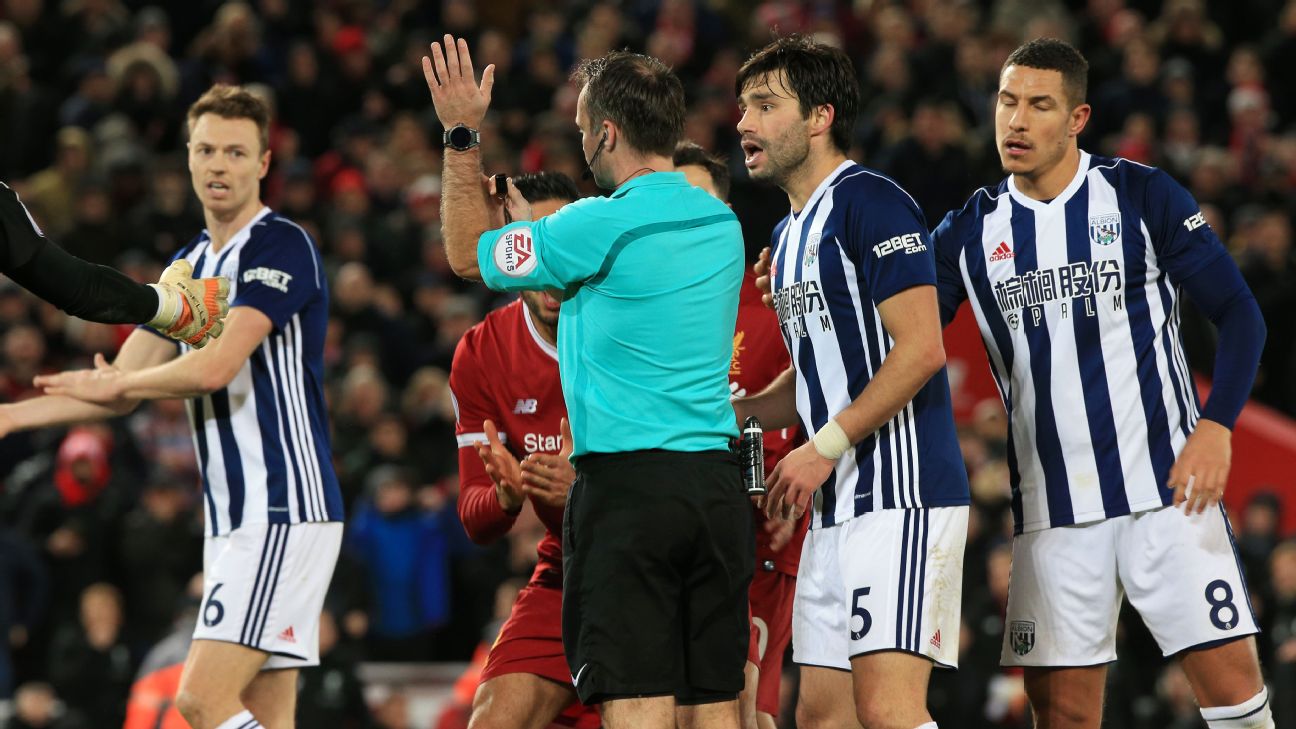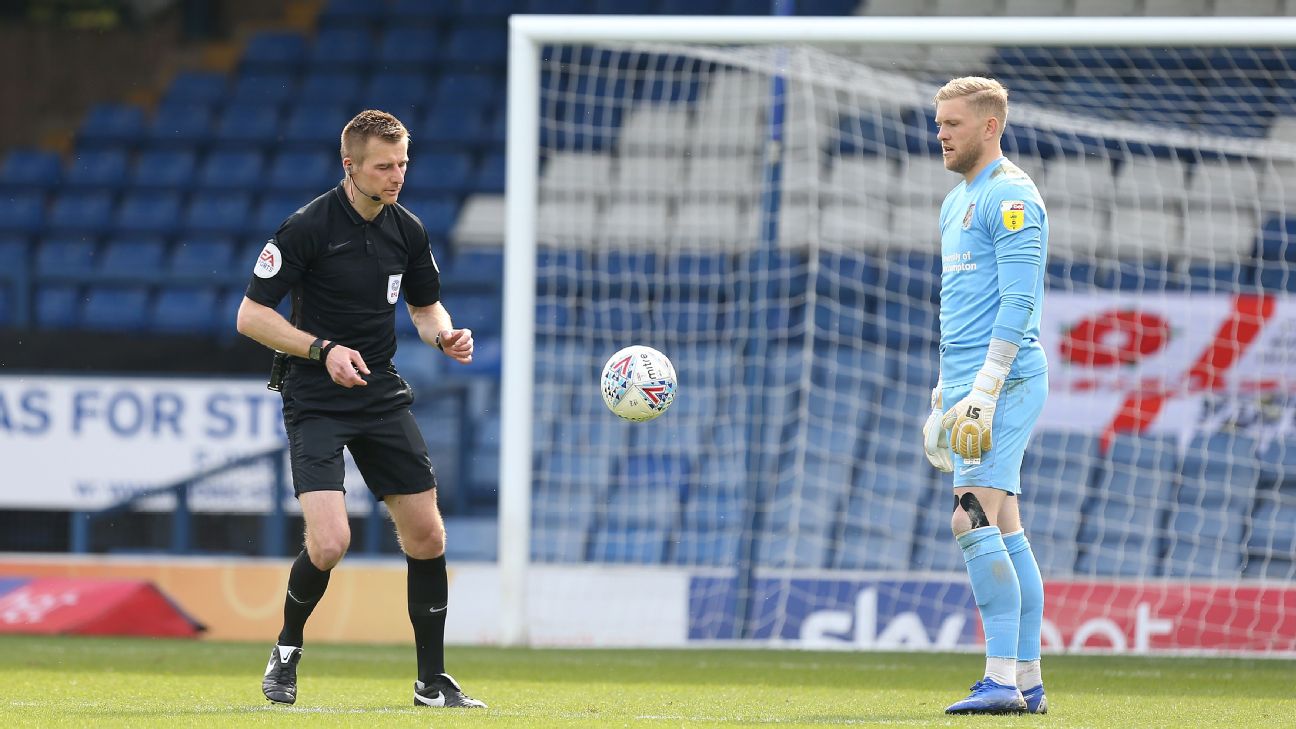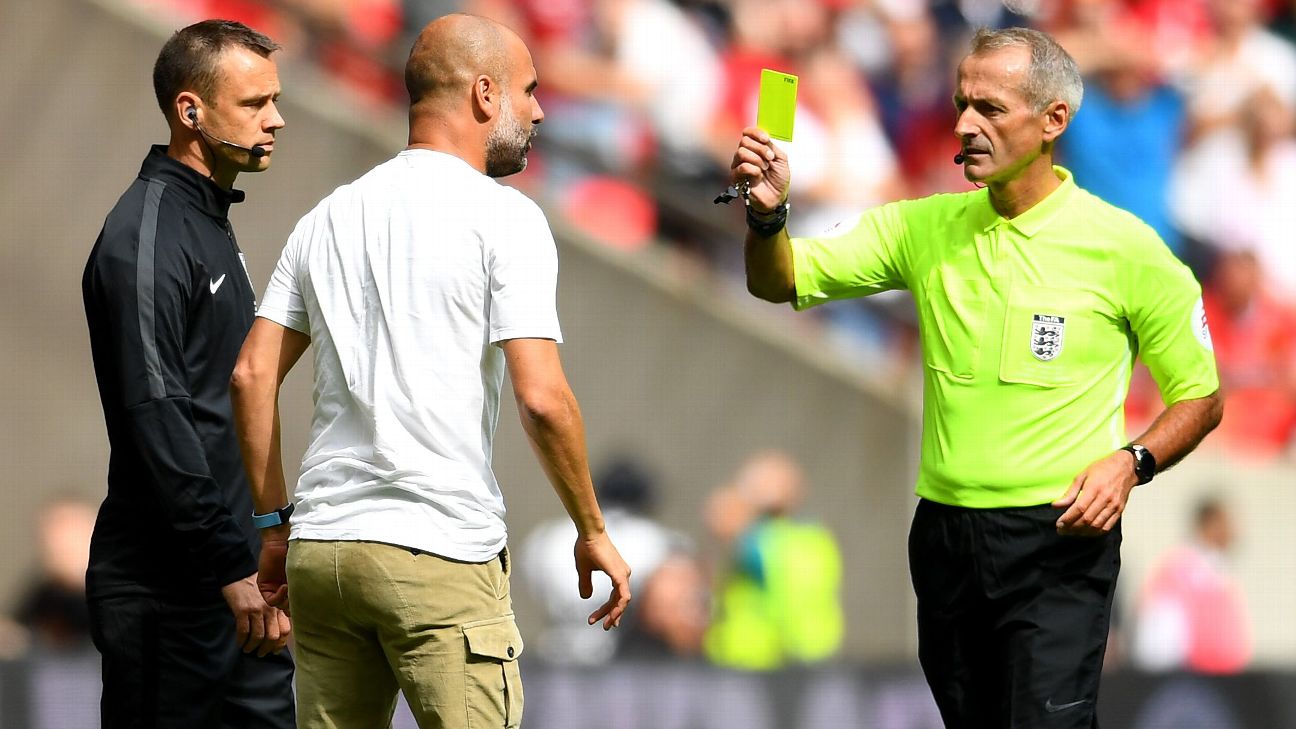
When the Premier League returns this weekend, fans, players and managers alike will have to contend with important tweaks to rules and regulations. We highlight a few things to look out for.
VAR
We’ve known for some time that Video Assistant Referees were coming. Gab Marcotti explains how VAR will work out in the Premier League.
Handball
You can find a full explanation of the law change here, but two of the basic principles are:
1. It will be handball if the body is in an unnatural position.
2. A goal cannot be scored by the hand via accidental contact.
The Women’s World Cup saw several penalties awarded for handball via VAR, which most observers felt were not in the spirit of the game. The Premier League has insisted that, despite the new law, it will be consistent with the past two seasons on handball decisions.
Why has this change been made?
The handball law has been rewritten to create greater clarity for players, officials and supporters.

The penalty kick
The goalkeeper must keep one foot on the line — the law used to state both feet — when facing a penalty and cannot touch the crossbar.
This change caused havoc at the Women’s World Cup, with VAR ordering a retake time after time, but in the Premier League goalkeeper movement will be left to the assistant referee’s discretion, so do not expect too much interference.
Also, a player is now allowed to receive treatment before taking the kick themselves.
Why has this change been made?
Allowing the goalkeeper to have only one foot touching the goal line is more practical. The kicker can “stutter” in the run, so is reasonable that the goalkeeper can take one step in anticipation.
The free kick
Attacking players now must be at least 1 metre away from a defensive wall. Already we have seen teams place an additional wall of their own in front of the defenders to get around the new law.
Why has this change been made?
According to the IFAB, attackers standing close to the wall can “cause management problems and waste time” and “their presence is against the ‘spirit of the game’ and often damages the image of the game.”
The quick free kick
Previously, a free kick was not allowed to be taken when a referee needed to show a card to an offending player. Now play will continue and the offender dealt with when the ball is dead.
Why has this change been made?
It was felt attacking teams were being penalised, blocked from restarting play quickly when a more serious offence has taken place.
– ESPN Premier League fantasy: Sign up now!
– All Premier League summer transfers
– When does the transfer window close?
The goal kick
As of this season, the ball no longer needs to leave the penalty area before a teammate can play the ball.
Opposing players must leave the area for the goal kick, but if the defending team takes it quickly then attacking players are able to enter and attempt to intercept.
The same applies for a free kick inside the penalty area.
Why has this change been made?
To speed up play. Rather than the defending team effectively having to wait for play to reset, the goalkeeper can simply pass to a teammate who will play the ball out.
The IFAB, football’s lawmakers, says: “It has reduced the time ‘lost/wasted’ including stopping the tactic of ‘wasting’ time when a defender deliberately plays the ball before it leaves the penalty area knowing that all that will happen is the goal kick will be retaken.”
The IFAB has already banned the goal-kick-cum-backpass that had been seen over the summer, whereby the goalkeeper would lift the ball to a defender, who heads it back to the keeper to throw or kick out. This was originally approved but it has been outlawed pending a technical review.
The dropped ball
It was rare in the modern game that you would see a contested dropped ball and now there is no chance of this. The ball will be dropped to a player of the team that last touched it. If play is stopped inside the area, it will simply be dropped to the goalkeeper
Why has this change been made?
The IFAB felt a dropped ball often led to a “manufactured” restart which is “exploited” unfairly (e.g. kicking the ball out for a throw-in deep in the opponents’ half) or an aggressive confrontation.

Kickoff
The team that wins the toss has the choice to kick off or change ends. It used to be that team could only choose to change ends.
Why has this change been made?
The kickoff is “more dynamic (e.g. a goal can be scored directly from the kick-off)” so it makes sense for a captain to choose to do this.
Substitutions
Previously, the outgoing and incoming players had to swap places halfway line. Now, the substituted player must leave the pitch at the nearest point and then walk around to the dugout.
Why has this change been made?
To eliminate time-wasting, whereby players would deliberately position themselves at the far side of the pitch when being replaced late in the game. Now they must leave the field immediately.
This law will be relaxed if a referee considers it unsafe for the substituted player to walk around the perimeter of the pitch.
Cards for coaching staff
Last season, the Football Association introduced a new code of conduct that could see managers and members of his team pick up disciplinary points.
From now on it will become far more obvious when coaching staff have overstepped the mark, with referees able to show cards. Pep Guardiola became the first Premier League manager to be booked, when he was shown a yellow in the Community Shield.
Why has this change been made?
The IFAB says: “The experiment with yellow card / red card for misconduct by team officials has been successful and has revealed many benefits at all levels, including for young referees dealing with ‘difficult’ adult coaches.”
Yellow cards for celebrations
Yellow cards will be shown if the goal scored is subsequently disallowed.
Why has this change been made?
Safety, image of the game etc. can still be affected by this even if there has been no goal.
Sin bins
Sin bins for dissent have been trialled in English grassroots football for the past two years, having been introduced into the official Laws of the Game in 2017.
However, from 2019-20, sin bins will appear in semiprofessional football in all leagues from Step 5 down. This is still a low level of football, but Step 5 brings sin bins into more organised league football rather than local, park football.
Why has this change been made?
Previously, 25% of all cautions were for dissent. Sin bins have seen great success in reducing dissent across the selected leagues by 38%, giving officials greater confidence to do their jobs without fear of how players will react to their decisions.
It remains unlikely that this will be introduced into professional football, but it’s one to watch.
